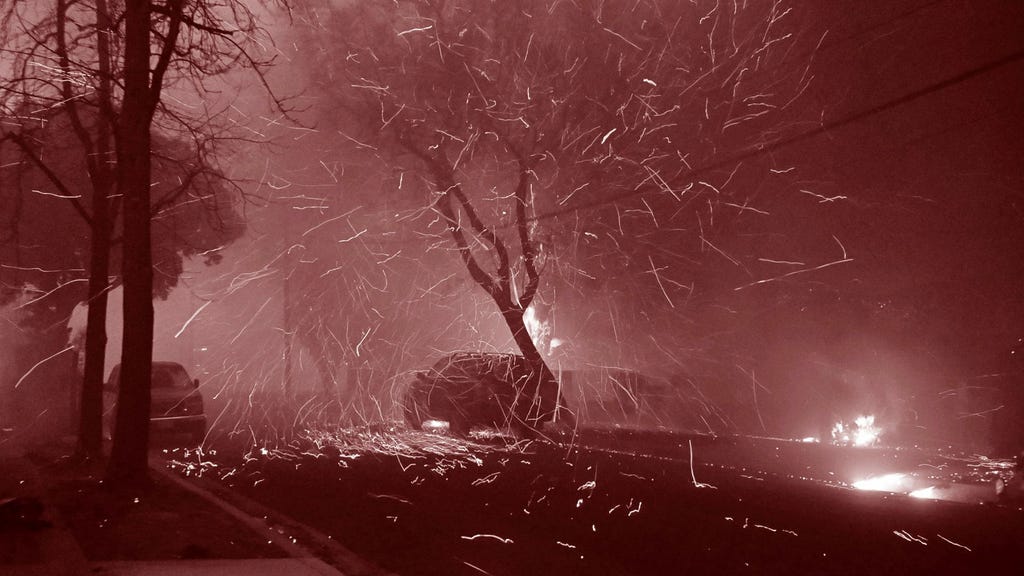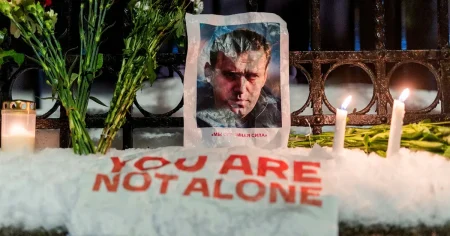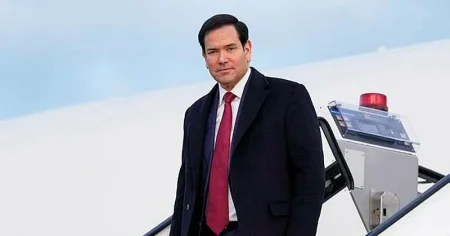The devastating images emerging from Los Angeles paint a grim picture of climate change’s escalating impact. Neighborhood after neighborhood in the Palisades district, once lush and green, now lies in ruins, reduced to ash and charred debris. The ferocity of the wildfires, propelled by strong winds, transformed the area into a hellscape, leaving residents not only homeless but also grappling with the profound emotional toll of loss. The human cost is staggering, with at least 24 lives lost, 12,000 homes and buildings destroyed, and 150,000 people displaced. The financial burden is equally immense, estimated to be between $60 and $130 billion. NBC News attributes the catastrophe to a combination of the region’s inherent vulnerability and the exacerbating effects of climate change. These events underscore the urgent need for proactive measures to mitigate the risks and consequences of a rapidly changing climate.
The timing of the Los Angeles fires coincides with a stark report from the European Union’s climate service, Copernicus. The report confirmed that 2024 was the hottest year on record since temperature measurements began in the 19th century, marking the first time the global temperature has surpassed the 1.5-degree Celsius target set by the Paris Agreement. While the El Niño weather phenomenon contributed to elevated temperatures in recent years, climate change remains the primary driver. Even with El Niño now subsided, 2025 is projected to be among the three warmest years ever recorded, highlighting the long-term warming trend driven by human activity. This alarming data underscores the urgency of addressing climate change and its cascading effects on global weather patterns and the increasing frequency and intensity of extreme weather events.
The economic consequences of climate change are also becoming increasingly evident. Munich Re, the world’s largest reinsurer, reported that 2024 was one of the costliest years for natural disasters, with a 30% increase in costs compared to 2023, largely driven by extreme weather linked to global warming. This escalating financial burden places significant strain on insurance companies, governments, and individuals, further emphasizing the need for investment in climate resilience and mitigation efforts. Despite these clear warnings, there is a disturbing trend of retreat from climate action within both the private and public sectors.
The actions of major financial institutions further illustrate this retreat. BlackRock, the world’s largest asset manager, withdrew from the industry alliance committed to net-zero emissions by 2050. Similarly, the six largest U.S. banks have followed suit since the fall elections, signaling a concerning shift in corporate priorities. This retreat is often framed as ”realism,” suggesting that the transition to a sustainable future is too expensive and burdensome for ordinary people. However, the devastating consequences of inaction, as witnessed in Los Angeles, demonstrate the true cost of complacency.
The political landscape also reflects a concerning disregard for climate action. Donald Trump, who baselessly attributed the Los Angeles fires to a rare fish, has pledged to withdraw the U.S. from the Paris Agreement. This denial of scientific consensus and commitment to fossil fuels further exacerbates the global climate crisis. This political rhetoric undermines international efforts to combat climate change and sends a dangerous message to the rest of the world. The retreat from climate action is not limited to the United States; within the European Union, there is ongoing debate about whether the bloc’s climate targets are too ambitious. Similarly, the Swedish government has scaled back its climate commitments in recent years, reflecting a broader trend of backsliding on climate action.
The stark reality of climate change’s devastating consequences, as vividly illustrated by the Los Angeles fires and underscored by scientific data, demands immediate and decisive action. The retreat from climate commitments by governments and corporations, often justified by claims of economic hardship, pales in comparison to the human and financial costs of inaction. The images of destruction from Los Angeles serve as a stark reminder of the real price of climate change and the urgent need for collective action to mitigate its impacts and build a more sustainable future. Ignoring the science and prioritizing short-term economic gains over long-term sustainability is a dangerous gamble with potentially catastrophic consequences for generations to come.














